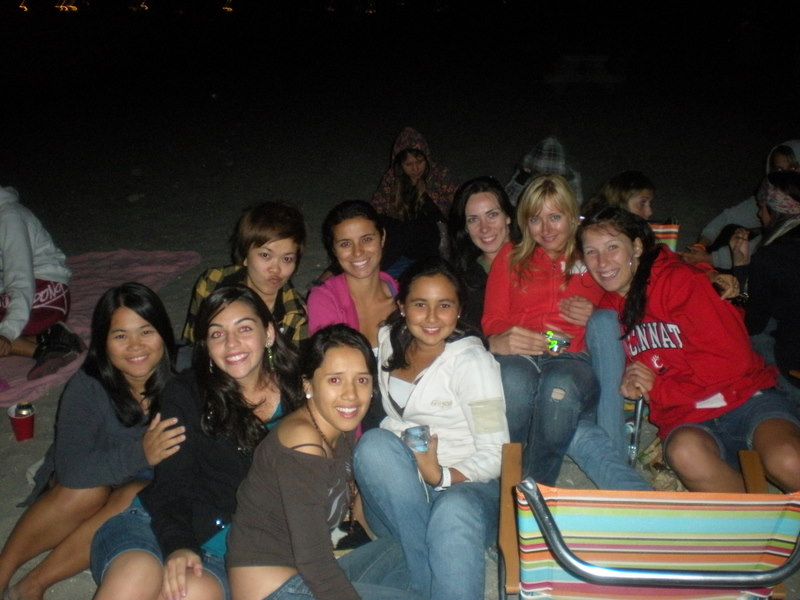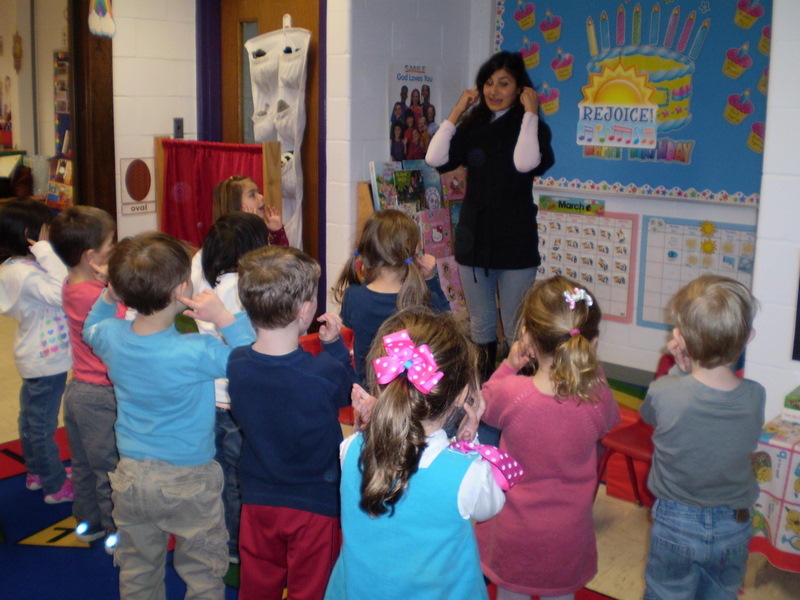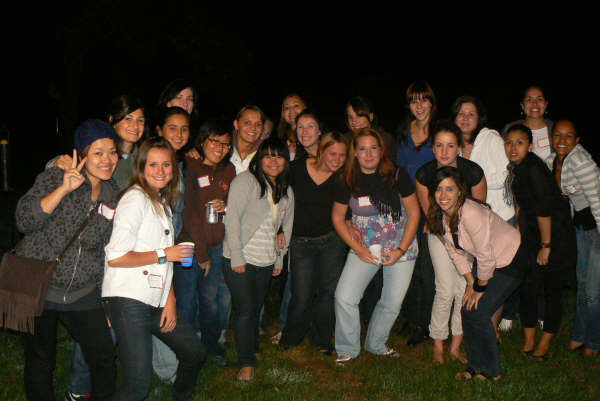 |
Olympic Update from Vancouver!
|
|
“we bring the world together”
Greetings!
Au Pair in America brings the world together, so we thought it would be fun to bring the world to you with updates on the Olympic Games in Vancouver. Enjoy!
|
|
|
|
|
 |
Olympic Update from Vancouver!
|
|
“we bring the world together”
Greetings!
Au Pair in America brings the world together, so we thought it would be fun to bring the world to you with updates on the Olympic Games in Vancouver. Enjoy!
|
|
|
|
|





Guidelines for Eating Smart
If you want to lose weight, here are some ideas to help you do that:
Crash diets or quick weight-loss schemes are not a good long-term solution.
Have patience in losing a half-pound to one pound per week.
Always drink plenty of water or other fluids.
Never skip meals in an effort to lose weight.
Get up and go, increase your physical activity.
Eat a variety of foods.
Credits: The International Food Information Council Foundation and http://www.bluecrossma.com
ALCOHOL – Explain laws regarding alcohol, i.e., underage drinking and drinking while driving. Generally, the drinking age in other countries is younger than it is in the United States.
APPLIANCES – Review directions for all your household appliances. Some, like garbage disposers, are not common in other countries. Offer the use of the washer and dryer right away, as many au pairs arrive with a limited wardrobe and have had no chance to do laundry at orientation.
BATHROOM – If the au pair is sharing a bathroom with family members, discuss scheduling, reasonable length of use, and housekeeping responsibilities.
CALENDAR – Explain the importance of entering classes, meetings, and social activities on the family calendar. Discuss what is acceptable notice for a calendar change.
CAR – If the au pair is allowed to drive, set guidelines on when and where. Explain seatbelt and car seat laws, what to do in an emergency, what to do in case of an accident, and who is responsible for the insurance deductible (and the amount) if there is a claim. Host families are responsible for providing transportation to and from classes and au pair meetings.
CONTRACT – Please abide by the host family contract. Do not ask the au pair to work more than 45 hours per week or more than 10 hours a day – even for compensation. All duties must be child care related. The one weekend off per month begins on Friday evening and ends on Monday morning.
CLASSES and CLUSTER MEETINGS – Au pairs are expected to attend cluster meetings and attend college classes. Ask the au pair to enter the date of her next meeting on the calendar and to check her class schedule with you before registering. Au pairs should not be scheduled to work at a time that would conflict with a meeting or a class
CURFEW – Most au pairs have not had a curfew at home. Allowing your au pair responsible freedom helps to build a relationship of trust.
DISASTERS – Review emergency procedures in case of fire or tornado and storm warnings.
EXERCISE – Encourage physical activity. Hanging around the house can lead to lethargy and depression, particularly during the winter. Membership at a Y or health club should be encouraged.
FOOD – Where in the house may food be taken? What are the house rules on meals and snacking
GUESTS – Set guidelines on entertaining guests, including overseas guests, in the home.
HOUSEWORK – What is the au pair expected to do? All housework should be child care related. Be specific about your expectations. Make sure she knows what to do in case of a cleaning “emergency” – child wets bed, dog gets sick, grape juice is spilled, etc.
INJURIES – Minor cuts and bruises are a standard part of childhood. Be sure the au pair knows where you keep your first aid supplies. Encourage her to take a Red Cross first aid class with an Au Pair in America scholarship.
JUNK FOOD – Be clear about what your children may and may not be fed. Indulging in junk food is not good for the au pair either
KITCHEN – Discuss expectations for keeping the kitchen neat and clean. Again, be specific about such things as wiping off the counters, cleaning up crumbs from under the table, etc
LAUNDRY – Give detailed instructions about sorting, emptying the lint trap, etc
MEDICAL RELEASE – Make sure that the children’s doctors know that you have an au pair. Have a medical release on hand in case of an emergency.
MONEY – Set a weekly payday. Help her open a bank account.
NEIGHBORS – Give your au pair a summary of the neighborhood, including introductions to the nearest neighbors and where to go for help or a spare key.
ORIENTATION – Allow three days to settle in before leaving your au pair alone with the children. Use the first week to orient your au pair to her new city. Show her around as you would any newcomer or guest. Point out places that she will want to visit, such as cinemas, shopping areas and especially the post office.
PRIVACY – It is important not only that the au pair and host parents honor each other’s privacy, but also that the children are taught never to enter the au pair’s room without permission.
QUESTIONS – Give her the opportunity to ask questions. Sometimes au pairs are reticent about approaching host parents. Arrange several times in the first few weeks to meet with your au pair without the kids around. A weekly meeting throughout the year can be very beneficial to the host family-au pair relationship.
RECREATION – Keep in mind that both the au pair and the kids need to have fun. Leave time in the daily schedule for play.
SAFETY – Discuss safety procedures for the children and childproofing devices. Explain 911. Be clear about your rules regarding locking windows and doors, car doors, and opening the door to strangers.
SCHEDULE – Inform your au pair of the weekly schedule in advance so she can make plans for her free time. Scheduling day to day leads to uncertainty and frustration.
SCHOOL – Make sure your children’s schools know the name of your au pair and whether they may release your child to the au pair in case of sickness or an emergency.
TELEPHONE – What are the rules on telephone use during work-time? What about long distance? Check with your long distance service about the most economical way of calling overseas, and then explain the details to your au pair. Or you may prefer that she use a pre-paid phone card. Explain call waiting, voice mail, and answering machines.
TELEVISION – Set limits on how much and what may be watched. (This includes watching MTV while children are present.
THANKS – Everyone needs to feel appreciated. Please notice and comment on the good job your au pair is doing. You may think it is just part of her job, but the au pair will need it to be noticed
UNDERSTANDING – Understand that the au pair may be dealing with both a language and culture barrier at first. Be patient!
VACATION – Discuss the best times for the au pair to take her two weeks of paid vacation. The final decision must be agreed upon mutually.
WINDOWS – Discuss opening windows with the au pair – air conditioning is not as common in Europe.
X-RATED – Attitudes regarding sex might be different in the au pair’s country. The au pair may, on the other hand, be shocked at the violence in our media. Set guidelines regarding your children’s entertainment.
YOUTH – Remember that your au pair is a young adult. She is still growing and learning just as we all did at that age. She will make mistakes. Please treat her as you would want your own child to be treated.
ZZZZZs – Remind the au pair of the importance of getting enough sleep. Kids move fast. Au pairs must be alert!
Thanks to Etta Rosen for this article.
Sibling Rivalry
One of the most common complaints about children is how much they fight with their brothersand/or sisters. Experts agree that this is an important and normal part of growing up which helps children to learn important social skills. Siblings learn how to compromise, negotiate and forgive through their conflicts. Sibling rivalry also teaches basic lessons of competition. Children learn how to compete in the safety of home, gaining confidence to compete outside the home. Children express their frustration with other events in their life by fighting with their siblings. It is safer to be angry with a brother or sister than with a parent, a teacher, or a friend. Even if the children are benefiting, it is still hard on the adults. Here are some tips to help ease the tension:
•Treat children as individuals whenever possible or practical. Children have different interests and preferences and these should be respected. Making one child always go with another child’s choice can create resentment.
•Children need special time when they can have an adult’s attention all to themselves. This is hard to do but well worth the extra effort.
•Catch the children being good and comment on it. Remember to praise sharing and cooperation when it occurs.
•Many fights occur just to get an adult’s attention. Let children resolve their differences by themselves whenever possible. Keep a watchful eye to be sure no one gets hurt in the process.
•When children fight it is important to recognize the feelings behind the fighting. Encourage children to use words to express their feelings. As an adult, explain your own feelings and don’t yell or grab the children.
•Sending children in different directions can help them to cool off, but trying to break up fights and figure out who is right and who is wrong can often make the situation worse.
•Help children to find an outlet for their feelings such as drawing a picture, or running around the yard, punching a pillow or yelling into a cup.
•Sometimes children want to talk about what is making them fight. Ask them to tell you what happened, but make sure that they start each sentence with the word “I” rather than “he” or “she.” This helps them to understand and take responsibility for their own feelings and actions.
•If children are struggling over the sharing of toys, it is okay to put some toys in a box and say those particular toys do not need to be shared.
It is especially difficult when there is a new baby taking adult attention. Older children may act more babyish or try to hurt the baby. Tell the child that you understand that it is hard to share his parents, his au pair, and his space, and that he is doing a good job of trying. Don’t give an older child too much responsibility – it may seem much more appealing to be a helpless baby than a big brother or sister.
Prime Time With Kids
Dog Biscuits
Bake a batch of these crunchy dog biscuits with your kids for a great Christmas doggie gift or a snow or rainy day activity. This simple recipe goes together in minutes, and young kids will have an easy and satisfying time rolling out or patting down the pliable dough to create shapes with cute cookie cutters.
Ingredients you’ll need:
2 cups whole-wheat flour
1 tablespoon baking powder
1 cup peanut butter at room temperature
1 cup whole milk
½ teaspoon salt
All purpose flour for rolling the dough
After you set the oven to 375 degrees, here’s how to get the kids involved:
Step 1: Let one child measure and combine the flour, baking powder and salt in a large mixing bowl.
Step 2: Another child may measure and stir the peanut butter and milk together in a smaller mixing bowl. It will take a minute or two until the mixture is smooth. Slowly pour it into the dry ingredients and stir until well-combined.
Step 3: Sprinkle flour on the counter. Knead the dough a few times until it is easy to roll out into a ¼ inch rectangle with a lightly floured rolling pin. Cut with cookie cutters in fun shapes such as a fire hydrant, bone, kitty heart or X’s and O‘s and transfer to greased (or parchment paper covered) cookie sheets.
Step 4: Bake 20 minutes or until edges are lightly browned. Let cool.
Divide into gift bags, tie with red ribbon and a Christmas tag and deliver to neighborhood dog friends for Christmas.
Note: A 1-1/2 inch heart shaped cookie cutter makes six dozen Christmas biscuits.